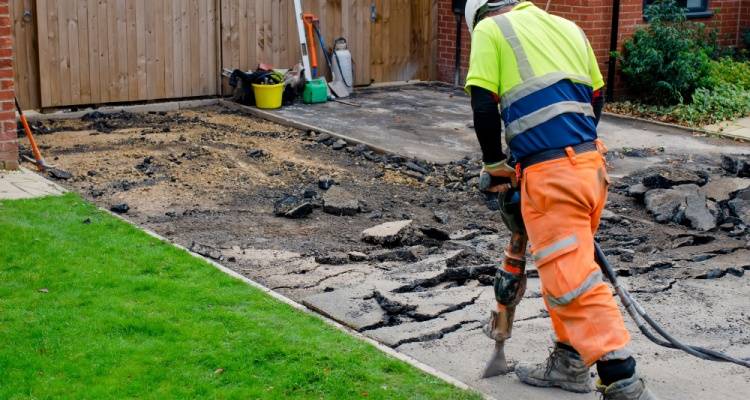SEO for Plumbers
SEO stands for search engine optimisation. The goal with SEO is to get your website to the number one spot on Google so that your customers see your website before they have a chance to see any of your competitors’ websites.
What does SEO for plumbing companies look like?
When a customer Googles a term like “plumbers near me”, the best-optimised websites will be shown to them first. The higher your website’s rank on Google, the more leads you’re likely to bring in - and local SEO for plumbers is especially important if you want to attract nearby customers looking for plumbing services.
The best part? SEO for plumbing couldn’t be more straightforward. There’s no need to hire an expensive agency to optimise your website for you - you can simply follow the steps we’ll outline in this guide and boost your earning potential.
Ready to learn about SEO for plumbers? Keep on reading.
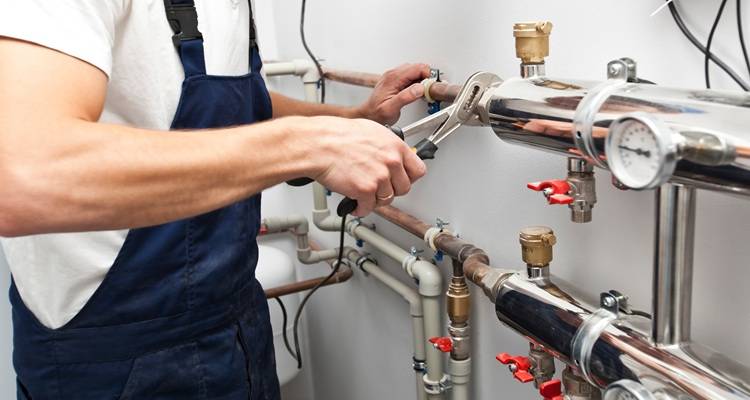
Table of Contents
- Local SEO for Plumbers
- Google Business Profile (GBP) Optimisation
- Ensure NAP Consistency (Name, Address, Phone Number)
- Local Citations & Directory Listings
- Use Local Keywords on Your Online Pages
- Google Maps Ranking
- Keyword Research: What Are Customers Searching For?
- Website Optimisation for Plumbers
- Content Marketing & Blogging for Plumbers
- Backlinks & Online Reputation
- Social Media & SEO
- FAQs
Local SEO for Plumbers
To generate local plumbing business, you need to focus your efforts on local SEO. This will ensure that the leads visiting your website are nearby, meaning you can fulfil their plumbing requests quickly and easily.

There are a few quick wins when it comes to local SEO for plumbing contractors. Here’s what we suggest:
Google Business Profile (GBP) Optimisation
First, you must claim and verify your Google Business Profile (GBP). Doing this will ensure your website appears in local search results on Google. You can claim this by searching for your business profile on Google and then requesting ownership.
Ensure Your Business Details Are Accurate
Once you’ve got ownership, you’ll need to ensure all your business details are accurate and up to date. These details include:
- Your business name: This must match your official trading name.
- Your business address: This is especially important for local SEO, as it helps to determine if you are a nearby business for potential customers. You should also include your service area if you’re a mobile plumber.
- Your business phone number: Using a local number helps to improve trust, so opt for landlines with local area codes to boost credibility.
- Your website’s URL: This should link directly to your website's homepage.
- Your opening hours: If you operate on-call or in emergency plumbing situations, note this, too, so your potential customers can understand the scope of your services.
Add High-Quality Images
Another key aspect of SEO for plumbers is to improve the visual appearance of your GBP.
You can do this by adding high-quality images of your previous plumbing work from a range of job environments, helping to show the breadth of your skills.
For example, if a customer is searching for “commercial plumbers near me”, think about what they’d want to see to help them understand if you’re a good fit for their project versus someone looking for a “local plumber to fit a new kitchen tap”.
As well as previous plumbing jobs, adding photos of yourself and your team will help gain potential customers' trust. Putting a face to the name helps to humanise your brand, making your services more appealing than companies without profile pictures.
Lastly, ensure your GBP has your current business logo to ensure consistency across all your online presences - your website, Facebook, Instagram, and LinkedIn, for example.
Post Regular Updates
Maintaining communication with your online community is useful when building a trusted brand and is especially key in SEO for plumbing companies.
Once you’ve completed a job, make sure you post about it to let potential customers see the type of work you’re completing and in what area.
And if you’re running promotional offers over bank holidays or other typical holiday periods, remember to post about them so your customers can see them, too.
Encourage Customer Reviews
Your website can have the best-written, most persuasive content, but it means nothing if you lack authentic customer reviews to back up your claims.
Once you’ve completed work for a client, ask them to leave you an online review, asking them to be specific about what they liked about your work and whether they’d recommend you or work with you again.
Businesses with more positive reviews rank higher on Google, which is a crucial step considering SEO for plumbers.
Ensure NAP Consistency (Name, Address, Phone Number)
A key detail important in SEO for plumbing contractors is a relatively simple one - ensuring your name, address, and phone number (NAP) are consistent across your online presence.
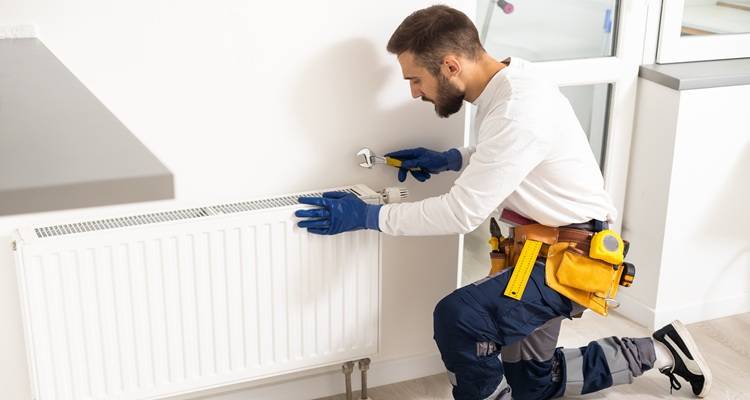
This includes:
- Your website
- Your social media channels (Facebook, Instagram, LinkedIn, TikTok)
- Online directory listings, such as MyJobQuote
It can be confusing for customers if they encounter different phone numbers or email addresses across different platforms, so keep them consistent so that you’re not unnecessarily hurting your search engine rankings.
Local Citations & Directory Listings
Getting listed on reputable trade directories can help SEO for tradesmen. This allows you to rank better in local searches, as you’re effectively using the directories’ reputation and SEO efforts to boost yours.
You should ensure your business is listed on Google Business Profile and MyJobQuote, where more than 1 million homeowners across the UK use the service to find tradespeople near them every year.
Use Local Keywords on Your Online Pages
Local keywords, or geo-targeted keywords, help local customers find your services. These can be easily added to your online platforms by following a simple structure:
- Your service + location
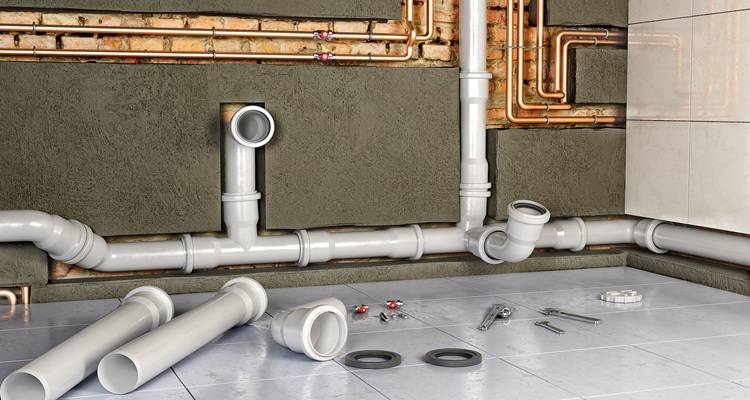
In SEO for plumbers specifically, this can create phrases like:
- Emergency plumber in [city/town]
- Boiler repair specialist in [city/town]
- 24/7 plumbing service in [city/town]
- Broken boiler specialist in [city/town]
Whatever your speciality is, you can create a phrase to match your service, helping customers to find you.
Google Maps Ranking
To get the best out of your SEO strategy as a plumber, you’ll want to get into Google’s “Local Pack”, which contains the top 3 results on Google Maps.
You can improve your Google Maps ranking by:
- Ensuring your GBP is fully optimised by following the steps we’ve already outlined.
- Encouraging more customer reviews from past clients to boost your credibility and reputation as a local trader.
- Utilise location-based, geo-targeted keywords in your business description (this is “your service + location”, creating phrases like “emergency plumber in Birmingham”, for instance).
Keyword Research: What Are Customers Searching For?
An essential part of SEO for plumbers is to identify what your customers are already searching for - and you can do this with keyword research.
The best free online SEO keyword tools are:
- Google Keyword Planner
- Ubersuggest
- AnswerThePublic
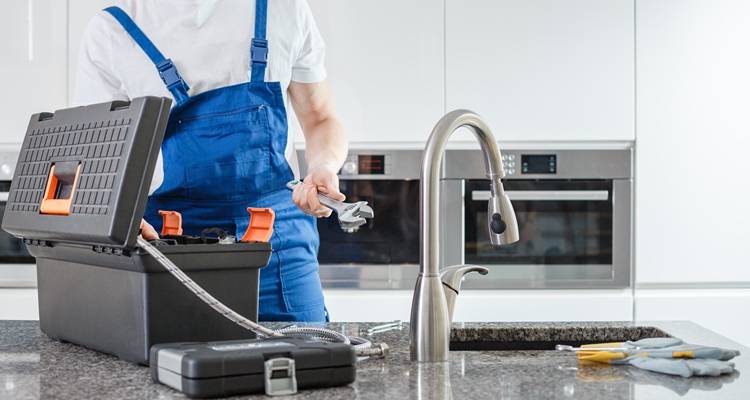
Once you’re on these websites, you can start to identify the most common search terms customers use when looking for plumbing services.
High-intent search terms (ones used most commonly) are typically split into three categories:
- Service-specific searches: E.g. “Emergency plumber near me”, “Gas Safe engineer in [city]”, “Blocked drain plumber”.
- Cost-related searches: E.g. “How much does it cost to fix a leaking tap?”, “Average price of boiler repair”.
- DIY-related searches: E.g. “How to fix low boiler pressure”, “Why is my radiator cold?”
Making sure you have these terms on your website will help you rank for these phrases when customers search for them on Google, positively boosting your ranking.
Website Optimisation for Plumbers
Homepage & Service Pages
Your website needs to be easy to understand, with your services clearly outlined. Think about your customers when designing your pages - what’s the most helpful layout for them?
Splitting your services into individual pages helps search engine ranking, especially for plumbers and other trades who may have many different aspects of their work to promote.
These service pages for plumbers can include things like:
- Boiler repairs
- Emergency plumbing
- Bathroom installation
- Drain unblocking
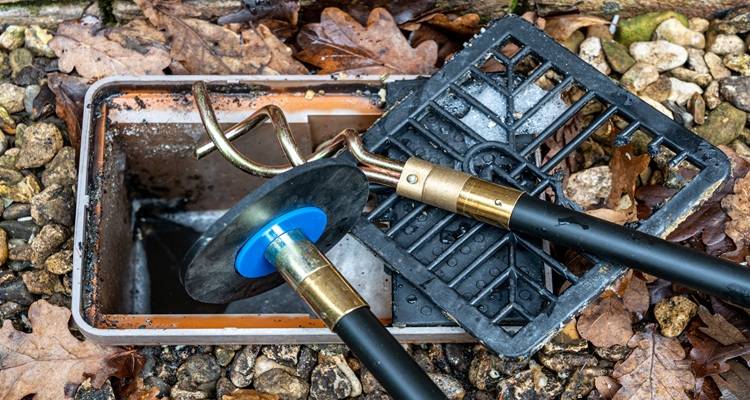
Remember: your dedicated service pages should use location-based phrases to help customers, such as “Emergency boiler repair in Manchester”.
Mobile-Friendly & Fast Loading
Most people use their mobile devices to find what they want online. So, while your website might look great on a laptop screen, you must also ensure it’s performing well on smaller mobile screens.
No one wants to wait for a slow website to load - they’re likely to move off the page and onto the next one. To avoid losing potential leads, you should ensure your website loads quickly on mobile devices.
You can check this using Google PageSpeed Insights, which will “look” at your website and tell you how quickly your page loads on different devices. It can also highlight the areas you can improve on to boost your speed, which can include things like:
- Shrink your images - larger images need a longer loading time, so reducing their size is a great first step to improving your web speed.
- Being more mobile-friendly - Make sure your website has a “responsive design” that adapts the webpage to the size of a mobile phone and doesn’t cut off any content.
- Make sure your website doesn’t have unnecessary code - things like custom cursors and lots of videos or animations can slow down load times.
- Avoid pop-ups where possible.
Contact & Call-to-Action (CTA)
You want to make your website as easy to navigate as possible, so make sure your call to action (CTA) is prominent.
Your business phone number, email, and contact form should be easy to find on every page. Mobile users can use “click-to-call” buttons so a customer can call you directly from your website without copying and pasting a number.
Customer Reviews & Testimonials
Authentic customer reviews go a long way in increasing a tradesperson’s credibility. Make sure your website has real customer reviews to help build trust in your community and improve your search engine ranking.
An easy way of achieving this is to ask your customers to write you a quick review after you’ve finished a job for them. You can improve your rankings further by adding before and after photos of the job to demonstrate your skills to your potential leads.
Content Marketing & Blogging for Plumbers
Why Blogging Helps SEO
A good way to showcase your plumbing knowledge and improve your search engine ranking is by posting helpful articles about your trade. Plumbing blogs can:
- Increase your website’s traffic with people looking for plumbing advice.
- Boost your website’s SEO, as organic and new content improves this.
- Build trust within your local community.
- Bring in new business leads by turning those looking for plumbing advice into customers.
To boost your plumbing SEO, you can write topics like the following:
- “How to Fix a Leaking Tap (And When to Call a Plumber)”
- “Signs Your Boiler Needs Repair”
- “How Much Does a New Boiler Cost?”
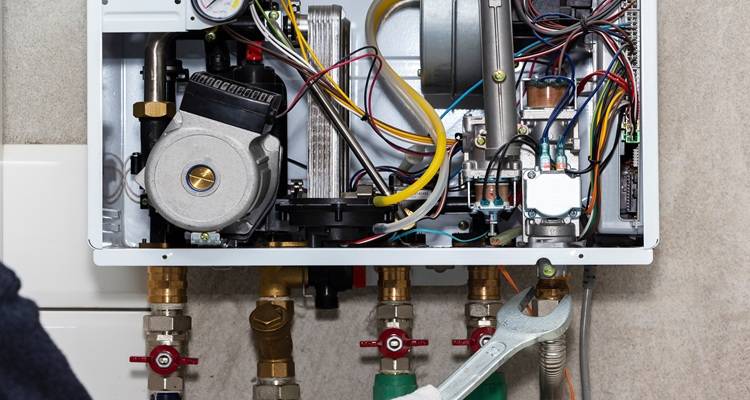
Use Internal Links
Once you’ve built up a catalogue of blog posts on your website, you can link to those guides from other site areas. This is an incredibly simple job, but it can significantly impact your search ranking.
For example, your internal linking can be as simple as:
- Emergency Plumbing service page links to: “How to Fix a Leaking Tap (And When to Call a Plumber)”.
- The Boiler Repair service page links to “Signs Your Boiler Needs Repair”.
- The Boiler Installation service page links to “How Much Does a New Boiler Cost?”
Internal linking is all about getting the most helpful content in front of your leads when they need it. If you spot parallels between your blog posts and your service pages, take the time to join them together with internal linking - your search ranking will thank you!
Backlinks & Online Reputation
What Are Backlinks?
Backlinks are links placed on other websites that link back to your plumbing website. They are good to use in conjunction with internal links, as both help to boost your website’s authority and, in turn, your page ranking on Google.
You need to be careful about where your backlinks are coming from, though, as links from low-quality websites can negatively impact your ranking.
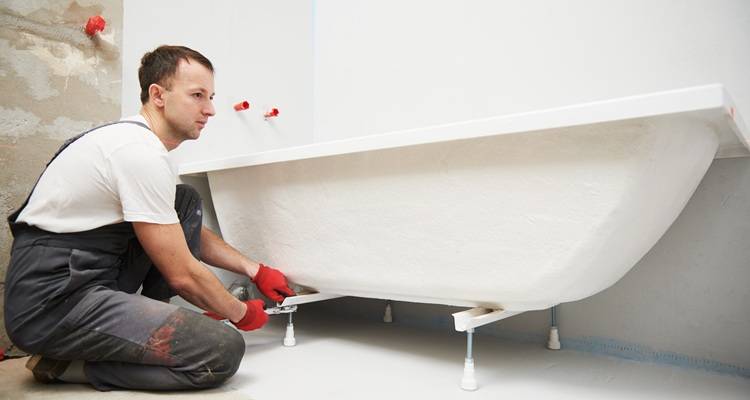
How Plumbers Can Get Backlinks
The best way to get quality backlinks is to partner with other local, related businesses as a “recommended partner”. For plumbers specifically, these trades can be:
- Electricians
- Heating engineers
- Bathroom fitters
- Tilers
- Carpenters and Joiners
You can also get quality backlinks from being linked to trusted plumbing industry websites, local news outlets, home improvement blogs, and online directories, such as MyJobQuote.
Social Media & SEO
Social media is an ever-growing form of media, and more and more traders are taking to social platforms to show their work in a quick, accessible way to local customers.
These platforms include:
- Facebook: You can join local Facebook groups to get new customer referrals.
- Instagram: Share before and after photos of your work.
- LinkedIn: Re-share customer reviews to build credibility and trust.
- TikTok: Record videos of your plumbing process to show customers how you operate on-site.

You can easily post before and after photos and videos of jobs to showcase your trade or post how-to videos of you completing the work to gain interest from potential leads looking for a trusted, reputable plumber.
Re-posting customer reviews on your social media platforms is a good way to build customer trust, and you can even utilise the platforms to promote special offers.
FAQs
How can SEO help plumbers get more customers?
How long does it take for a plumbing website to rank on Google?
What are the best SEO strategies for plumbers?
- Claim and optimise your Google Business Profile (GBP).
- Make sure your business details are consistent across all platforms (website, Facebook, Instagram, LinkedIn).
- Optimise your web pages for local search, e.g. “Emergency plumber in [city/town]”.
- Get high-quality backlinks and use internal linking throughout your website.
- Ask previous customers to leave reviews to boost credibility.



